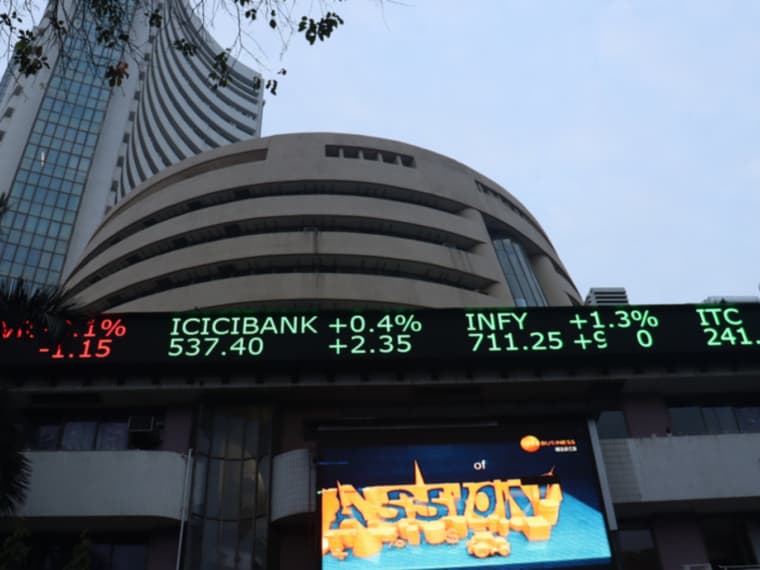
Under T+1 settlement, securities transactions will reflect in the demat account after a day instead of two days now under the T+2 cycle
All securities, including stocks, debt instruments, REITs, InvITs, and ETFs, which were earlier under the T+2 settlement cycle, would transition to the T+1 trade settlement cycle from Friday
The stocks that are migrating to the T+1 cycle include the likes of Reliance and Tata Motors, as well as midcap new-age tech stocks like PB Fintech, Delhivery, Nykaa, and Paytm
In a major change in the settlement of securities trading on the Indian stock exchanges, all the securities that are currently in the T+2 settlement cycle will transition to T+1 rolling settlement effective from Friday (January 27). Here’s everything you need to know about the transition, what it means for you, and more.
What is the T+1 settlement cycle?
In simple terms, T+1 settlement means that securities transactions will reflect in the demat account after a day instead of two days now under the T+2 cycle. If an investor buys a stock on Thursday, it would be shown in the demat account on Friday. Similarly, for a stock sold on Thursday, the funds would be credited on Friday.
Since when are the Indian exchanges following the T+2 settlement cycle?
Markets regulator Securities and Exchange Board of India (SEBI) shortened the settlement cycle from T+3 to T+2 effective from April 1, 2003.
When did SEBI introduce the T+1 settlement cycle?
Through a September 2021 circular, the markets regulator provided stock exchanges the flexibility to offer either T+1 or T+2 settlement cycles. Following this, Indian exchanges decided to move to the T+1 settlement cycle in a phased manner.
The first phase of the transition began in February last year, with the bottom 100 stocks in terms of market capitalisation moving to the T+1 settlement cycle. Since then, new stocks have been moved in phases to the shorter settlement cycle.
Which stocks are moving to the T+1 cycle now?
All securities, including stocks, debt instruments, REITs, InvITs, and ETFs, which were earlier under the T+2 settlement cycle, would transition to the T+1 trade settlement cycle from Friday (January 27).
The stocks that are migrating to the T+1 cycle are part of the Nifty 50 and Sensex. The list includes the likes of Reliance Industries, Tata Motors, Infosys, and State Bank of India, as well as midcap new-age tech stocks like PB Fintech, Delhivery, FSN E-Commerce or Nykaa, and One97 Communications or Paytm.
What are the benefits of the T+1 cycle?
According to a SEBI discussion paper, a shorter settlement cycle not only reduces the risk prevalent in the system but also reduces and frees up the capital required to collateralise that risk. Besides, it will also lead to savings in operational costs as many processes will move from manual to automation mode.
Speaking about the transition to the shorter settlement cycle, Ambareesh Baliga, an independent market analyst, said, “It will improve cash flows as instead of waiting for T+2, one would get funds the next day. So it may have a positive impact on volumes.”
Which other countries follow the T+1 settlement cycle?
India will become the second largest market after China to move to the one-day settlement cycle. Markets in the US and Europe still follow the T+2 settlement cycle.
Highlighting this, Nithin Kamath, founder and CEO of stock broking platform Zerodha, said in a tweet, “Starting tomorrow, India will become the first major market to completely move to a T+1 settlement cycle (China is partly T+1). It is crazy how far ahead we are in terms of market infrastructure and safety, even when compared to the developed world.”
Will the transition affect trading?
There would be no effect on trading due to the transition. However, if any of the stocks moving to the T+1 cycle were bought on Wednesday (January 25), they would not be available for selling till Monday (January 30) in order to avoid the risk of short delivery. On Monday, these transactions would be settled as per the old T+2 settlement cycle.
However, stocks bought on Friday would be settled as per the new T+1 settlement cycle and would be available for selling in the next trading session itself.
Due to this, many stocks were offloaded on Wednesday, which partially contributed to the fall in the Indian stock market.




 Fintech
Fintech Travel Tech
Travel Tech Electric Vehicle
Electric Vehicle Health Tech
Health Tech Edtech
Edtech IT
IT Logistics
Logistics Retail
Retail Ecommerce
Ecommerce Startup Ecosystem
Startup Ecosystem Enterprise Tech
Enterprise Tech Clean Tech
Clean Tech Consumer Internet
Consumer Internet Agritech
Agritech




























